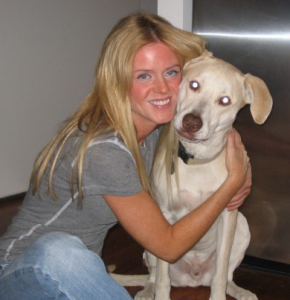This is a post by Dawna MacLean, a person of immense talent and passion. She has repeatedly developed and implemented successful business strategies that have resulted in sustained revenue growth, increased margins, decreased operational costs and improved customer experience. We are thrilled that she has agreed to be a guest on TomorrowToday’s new world of work blog. Read her first post below:
I am profoundly struck by the enormity of the opportunity to radically re-discover, re-shape, re-invent, re-new, re-act, re-approach, and re-create our corporate environments, supply chains, industries, really our business community broadly. Companies and leaders with the courage to actively embrace this revolution will discover and expand their potentiality. However, those that merely observe, resist or ignore it are playing a high risk gamble with their ability to sustain let alone survive the unavoidable changes that have already been set into motion. Click on this link to view an illustration of all of the elements, factors, stakeholders, and drivers at play in How to Prosper From Radical Meaningful Change
I recently listened to a brilliant HBR IdeaCast featuring Don Tapscott, a provocative thought leader and coauthor of Macrowikinomics. In this interview Don provides compelling examples of companies that are embracing this revolution. Without question, we are at a punctuation point in history. I found two topics quite powerful and extremely relevant to the radical change ahead that we want to ensure we shape in a highly meaningful way.
The first is the need to replace the traditional command and control organizational structures with new ones designed to empower mass collaboration. Don shared the example of how Lynx Operating System has been successful by taking a non conventional approach to structural design. This approach mirrors the principles and approach of Agile. The business community broadly has much to learn and leverage from Agile principles and methodologies. While they have been written in context of software development, they apply universally as best practices. In short, it is a customer-centric practice with a highly incremental and adaptive approach and a supporting universal language, notation and process. Notably, management takes more of a curator approach and gives the developers the autonomy and empowerment to develop solutions that are relevant. This would require a massive shift in leadership, where trust, respect, vulnerability, transparency, and awareness become essential.
The second topic was Don’s suggestion for the news industry to be re-built as a new macro collaborative, eco-system in the form of a “network newspaper”. Capitalizing on the massive opportunity to join forces and play on the same team. I believe that his example is even more powerful when applied to the health care industry. Health care globally, is starving for a new eco-system that both capitalizes and solves the enormous gaps in patient experience and an incredibly bloated cost structure. We need a macro health network and to do this, the abundant number of diverse stakeholders within health care will need to recognize and embrace that we are all on the same side now, the side of the patient.
Our biggest challenge is not the complexity of the solutions required to solve the underlying problems, it is the attachment to traditional solutions and fear of change that are so tightly guarded in some of the highly command and control industries like heath care. Industries like technology, by its very nature, have been forced to explore and develop more open, collaborative and adaptive structures and solutions and will be much faster, closer and creative in their strategies to embrace this change.
 Fasten your seat belts everyone, because chains of command will be replaced by circles of influence and business fortresses by collaborative business ecosystems. We will see an emergence of leaders without titles and partnerships with competitors to solve social and political complex problems. This is the beginning of collective ownership at its best.
Fasten your seat belts everyone, because chains of command will be replaced by circles of influence and business fortresses by collaborative business ecosystems. We will see an emergence of leaders without titles and partnerships with competitors to solve social and political complex problems. This is the beginning of collective ownership at its best.


